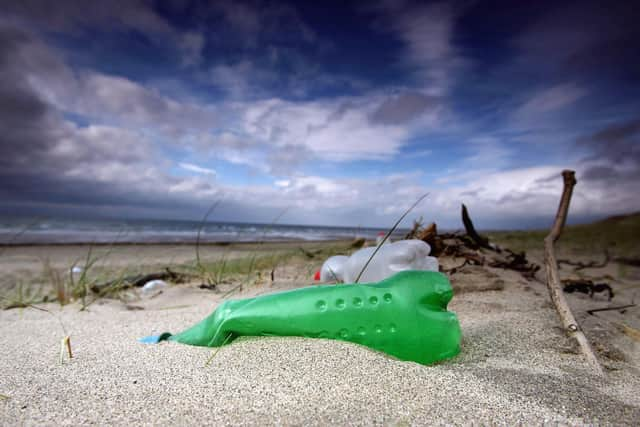Circular Economy Bill: Scotland consumes 100 million tonnes of materials a year, about twice as much as necessary for a good life – Dr Richard Dixon
The promised Circular Economy Bill must take action to eliminate this problem and drastically reduce our major over-consumption of the planet’s resources.
The Scottish Government is currently consulting on what should be in the Bill. This is the second time they have asked about this because the pandemic caused the whole process to be put on hold in 2020.
Advertisement
Hide AdAdvertisement
Hide AdThe Bill could transform the way we use materials, what we do with waste and even what we consider to be waste. This would mean better product design and choice of materials, and give a huge boost to repair, re-use and recycling.
The first time round over 1,000 people responded and firmly said there should be targets for reducing consumption of materials in the Bill. It looks like the Scottish Government were listening because the current consultation asks whether there should be targets.
Our demand for plastics keeps the oil industry creating climate change, and pollutes land and water. Our demand for rare minerals for electronics and batteries affects communities near mining operations around the globe.
Our demand for cheap clothes that are only worn a couple of times creates water stress and increases pesticide use in poor countries. And our huge demand for imported goods means our total carbon footprint is more than twice what we measure when we just count our direct emissions here in Scotland.


Just as the targets in Scotland’s two climate change acts have focused government attention on reducing emissions, targets on key resources would drive action to reduce our impacts here and overseas.
New figures show that Scotland produced 123 million tonnes of materials, imported 129 million tonnes and exported 152 million tonnes in 2017.
This means we are consuming about 100 million tonnes of materials a year, about twice the amount that is estimated as necessary for a good, quality life. An overall consumption target would drive down our current over-consumption.
Probably the best example in Europe, the Netherlands have set a target to become waste free by 2050. The European Union is also developing material-use targets. Friends of the Earth are calling for a Scottish target to reduce materials consumption by 30 per cent by 2030 and 57 per cent by 2045 from 2017 levels.
Advertisement
Hide AdAdvertisement
Hide AdSimilarly, targets on specific critical materials like lithium and nickel would drive up recycling of these materials and reduce our demand for newly-mined virgin materials from around the world.
Of course, we need to be clever in setting targets; there are some things we should use more of. One raw material we produce plenty of is wood and replacing steel and concrete with sustainably-produced wood in building projects is generally a good thing as it reduces the consumption of those materials and massively reduces the carbon footprint of the final buildings.
The Circular Economy Bill is the big opportunity to transform the way we think about materials – treating them as valuable resources instead of as wastes – and set Scotland on track to be a super-efficient nation with a light footprint on the rest of the planet.
Dr Richard Dixon is an environmental campaigner and consultant
Comments
Want to join the conversation? Please or to comment on this article.
